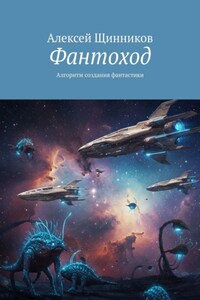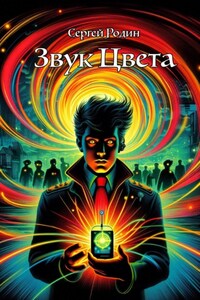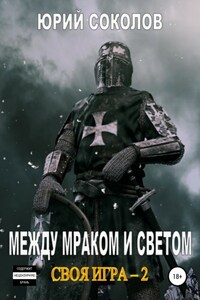We can know enough of the past
And be sure of present at last,
But the future stays unknown,
We can only guess what will be shown.
V.M. Simbarsky
![]()
The bone-chilling January wind and, more importantly,
the rain – the incessant rain that had been falling
for five days straight – finally knocked them off
balance. They had been stuck in this godforsaken
hole, a place long forgotten by civilization, for
a month now.
Looking around, it seemed impossible that everything
here was once entirely different. Wooden houses
once stood in perfect linear order, connected by
a single road that doubled as the only street.
Windows with beautifully painted frames, livestock
and poultry roaming freely near the houses, adorned
it. Not far from the village, beyond the rye fields,
stretched the endless expanse of forests with all
their treasures.
In those January days, a thick blanket of fluffy
white snow covered the earth, crunching underfoot
with each step. The frost, which painted cheeks
rosy, held these lands in its grip all winter.
From the sky, snowflakes fell evenly and slowly,
as if someone were scattering cotton from above
or beating an old, tattered feather bed. They
twirled and settled, and the snow grew deeper
and deeper, forming drifts where carefree children
frolicked.
Good Lord, was all of this real? Ben gazed at
the black, soggy steppe, drenched and muddy,
scorched by an unseen fire. He tried to understand
who needed this war and why. Closing the book
about World War I, he stared out the window for
a long time, contemplating the senseless, useless,
and foolish cruelty, that animal instinct with
which people so easily destroy one another.
“Yes, it’s good we don’t live in those times,”
Ben said to himself.
Our hero is a young man. As you’ve already gathered,
his name is Ben. At 24, he’s an athletic blonde
of average height with strikingly blue eyes. In
the mid-21st century, nationality had long ceased
to be a primary characteristic, losing its
significance entirely. So let’s simply say: our
hero hails from somewhere in the north.
His parents once told him that his grandmother was
Swedish, while his grandfather had come to England
from somewhere in Eastern Europe. But now, such
details are mere whispers of a forgotten past.
After the immigration reform in the first quarter
of the 21st century, borders dissolved like morning
mist, and the great mingling of peoples began.
In the blink of a cosmic eye, humanity transformed
into a single, unified nation – the people of
planet Earth.
But enough of that. We’ve momentarily lost sight
of our hero. Ben had just finished college, majoring
in 20th-century history, and was preparing for his
thesis on World War I. He lived in a small town
near London, working evenings at a construction
site. Yes, dear reader, some things never change.
Does this remind you of your student years? Forms
may evolve, but the essence remains. Students,
just as they did 100 or 200 years ago, still work
construction jobs. Our Ben was no exception.
And it was at this very construction site that
everything began. It started like this: An ordinary
day. Ben returned from college, grabbed a quick
bite, and prepared for work. On his way to the
site, he encountered an engineer who directed him
to a new area, section four. Ben had never been
there before, and his path wound through a labyrinth
of building materials, bricks, and assorted
construction debris.
No one was around, and for a moment, Ben felt a
wave of disorientation and unease, as if he’d
stumbled into some cosmic maze. Suddenly, he tripped
over a piece of debris. His head spun, and Ben
began to fall. Just when he thought he should have
hit the ground, he realized he was still falling.
It was like a dream where you fall and fall, then
land with impossible softness.
Ben came to, utterly bewildered. It felt as though
he’d been falling for an eternity, yet he knew
logically that only moments could have passed. He
shook his head, as one does in such situations,
stood up, and began dusting himself off. Only then
did he notice he wasn’t standing on the dusty,
dirty floor of the construction site, but on
something perfectly smooth and clean.
Standing up straight and looking around, he uttered
in bewilderment: “Wow.” Again, as one does in such
situations.
Everything around him gleamed with cleanliness,
and somehow everything seemed extraordinarily
precise. Sharp geometric lines, strictly vertical
and horizontal, were present in everything his
gaze fell upon. The structures surrounding Ben
were crisp – square and rectangular. Some towered
above others. Ben couldn’t comprehend what this
was. It seemed like a street in some fantastical
city from 20th-century science fiction stories.
At least, that’s how it appeared to him.
“But wait! What the hell is going on?!” Ben seemed
to be shouting at himself. “Am I dreaming? Did I
hit my head while falling? Am I unconscious now?
What am I? Where am I? How did I get here?” But
soon, regaining his composure and overcoming his
momentary hysteria, he thought, “It doesn’t matter








